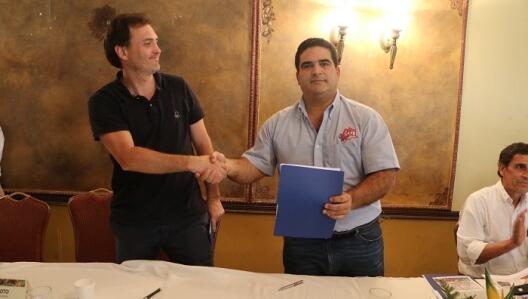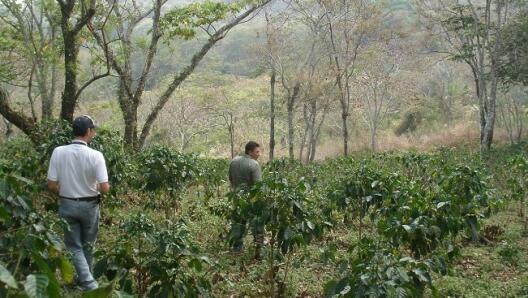Kick-off of research collaboration with the Fundación Co. Honducafé in Honduras


After months of preparation, the data collection process for TRANS SUSTAIN’s empirical studies has been kicked off in Honduras with a collaboration agreement with the NGO Fundación Co. Honducafé. TRANS SUSTAIN team leader Professor Thomas Dietz and team member Janina Grabs were invited to participate in the Forum on a Sustainable Honduran Coffee Sector, organized by the Fundación Co.Honducafé. During the first day of the forum, Thomas Dietz and Ing. Terense Fuschich signed the collaboration agreement in a formal ceremony.
Thereafter, the team enjoyed the opportunity to attend extremely insightful presentations from different non-governmental and industry representatives in the Honduran coffee sector. On the last day of the forum, the TRANS SUSTAIN team organized a half-day capacity-building workshop that familiarized the field agronomists with the survey and the data collection methodology.
This methodology was then tested during a week-long calibration visit of the Western regions of Honduras, where a large share of the surveys will be collected. One identified challenge is to accurately capture the diversity of farming realities, including different farm sizes, varying levels of accessibility and different levels of capacity and education of the farmers. Another issue the team has been working on is to strike the right balance between scientific accuracy and efficiency, since each additional question adds to the time a farmer needs to spend answering the survey. Finally, the surveys are filled in on the coffee farms or producers’ homes, where cell phone and wireless internet access is often non-existent. Thus, an offline method of collecting data was developed to expedite the process and to avoid duplicating the necessary work by first collecting responses on paper and then transferring them to an online database.
The team will collaborate with 20 trained data collectors which have gained the trust of farmers by serving as extensionists and agronomists in the field for several years. They will collect data from three Honduran regions (Occidente, Yoro and El Paraiso) and farmers participating in four different certification schemes (Rainforest Alliance, UTZ, 4C and Fairtrade) as well as non-certified farmers. The results of the survey are expected in early July. On the basis of this information, it will be possible to quantify the economic and environmental added benefits of joining a certification program in the context of Honduran coffee farmers.